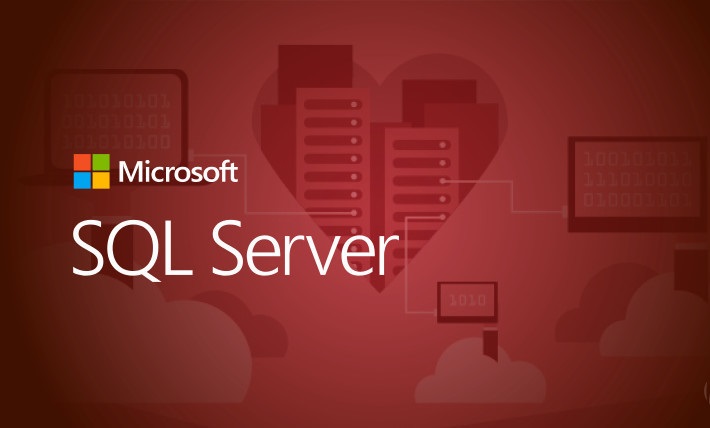SQL Server is a popular and impactful database solution used by plenty of businesses to run websites, apps and other mission-critical services.
There are still those who have yet to be converted to adopting this respected Microsoft platform, so here is a run through of the pros and cons of SQL Server so that you can make up your own mind about its suitability for your needs.
Edition variety & cost complications

The SQL Server ecosystem is made up of several products which are tailored to the differing requirements of organizations of all shapes and sizes. From the entry-level Express edition, which is free of charge and comes with basic yet instructive features, to the flagship Enterprise edition, there should be something for everyone.
This positive is counterpointed by the costs which come with the premium editions, which are not insignificant and make it more expensive to adopt than the open-source alternatives. It is a case of businesses considering their budgets and calculating carefully to make sure that they will be able to extract adequate value from an SQL Server deployment to justify the asking price.
Performance & troubleshooting
Performance is crucial in any server environment, and SQL Server is no different, with robust built-in analytical abilities and cleverly implemented solutions like this offered to maintain optimal operation as much as possible.
The advantages that this brings to the table are tempered by the fact that problems can and do arise, and so there is a need for the overseeing of a server by a specialized database administrator, especially if it is being hosted on in-house hardware.
Flexible configuration

Having briefly touched on the local hosting of SQL Server using servers you run on-site, it is also worth noting that one of the biggest selling points it brings to the table is support for cloud-powered databases as well.
Whatever combination of resources and configuration of servers you would prefer for your unique circumstances, it is likely that SQL Server will be able to accommodate these. Furthermore because it offers compatibility with Linux, in addition to Microsoft’s own operating environment, it will not necessarily alienate those who are used to working in this specific software enclave.
Resilience
Another of the main reasons that many businesses choose SQL Server over its competitors is that it is capable of providing excellent recovery options in the event of a data disaster, whether caused by a power outage, hardware failure or some other calamity.
Furthermore there is yet more flexibility when it comes to how the data recovery process is configured, meaning you are not tied into a single approach but can instead dictate how backups are created, how they are restored and the frequency with which data is cached to prevent permanent loss.
Security

One perk of working with a database platform which is developed and provided by a big-name brand like Microsoft is that this allows for greater levels of security to be available, both for businesses and end users.
While open source equivalents may be more affordable to set up and can offer improved flexibility in comparison, it is also harder to guarantee a certain level of protection for the information stored on such servers. Meanwhile the enterprise-grade nature of SQL Server means that security is one of the core concerns behind its creation.
That is not to say that it is entirely infallible; there are still vulnerabilities to look out for and flaws which can be exploited. But because Microsoft is incentivized to find and fix these issues to keep its customers happy, patches and updates arrive regularly and any problems can be weeded out in no time flat.
Hardware requirements
We have already touched on the option you have to run SQL Server on someone else’s hardware infrastructure in the cloud, but plenty of people still choose to set up their own database on in-house equipment to have complete control over every aspect.
This is something of a double edged sword, at least from the point of view of those on limited budgets. While the system requirements of SQL Server are lenient from a modern perspective, there are still plenty of organizations with legacy hardware they want to use for hosting purposes and thus the minimum limits for things like RAM allocation and CPU core counts could become a burden.
Of course being compelled to upgrade your hardware to take full advantage of SQL Server is not a bad thing, and could be the motivation you need to take the leap with freshly specified server kit rather than making do with setups that are getting a little long in the tooth.
Software accessibility & interoperability

There is definitely a learning curve to overcome when using SQL Server for the first time, but Microsoft has lots of training resources and courses for those who want to master its software and it is definitely more accessible in this respect than some of its rivals.
Furthermore because it is tied into other Microsoft creations, including the .NET framework, it is a good investment for organizations that want to go all-in with the offerings from this particular vendor. You may feel that this is a restriction in some ways, but the reality is that you can reap serious rewards if you do put all of your eggs in one software provider’s basket.
Of course for those who are hoping to run SQL Server on MacOS, for example, the ease of doing so is less obvious, although it is possible. Generally it makes sense to stick with a single software vendor’s ecosystem, both from an interoperability perspective and from a pricing point of view. If you decide to migrate elsewhere further down the line, this is always an option to consider.
In all, it is easy to make the case for SQL Server being a worthwhile investment for lots of organizations and enterprises. With the support of a multinational corporation behind it, this platform is reassuringly mainstream.









